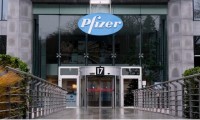-
Hamilton Medical’s urgent ventilator notice deemed Class I recall by FDA
- Source: drugdu
- 127
- September 4, 2023
-
Johnson & Johnson slashes price of tuberculosis drug Sirturo after relinquishing patent protections
- Source: drugdu
- 163
- September 4, 2023
-
International survey reveals varying effects of oral medicines for Parkinson’s
- Source: drugdu
- 99
- September 4, 2023
-
Man-made antibody successfully prevents organ rejection after transplantation
- Source: drugdu
- 114
- September 1, 2023
-
Pfizer, BioNTech Challenge Moderna’s COVID-19 Patents with USPTO
- Source: drugdu
- 107
- September 1, 2023
-
Novo Bolsters Obesity Pipeline with Potential $500M Embark Biotech Buy
- Source: drugdu
- 205
- September 1, 2023
-
FDA shuns Outlook Therapeutics with wet AMD drug BLA rejection
- Source: drugdu
- 105
- September 1, 2023
-
Merck receives EC approval for Keytruda combination in gastric cancer
- Source: drugdu
- 103
- September 1, 2023
-
Recalls and Shutdowns Worsen Drug Shortage Crisis
- Source: drugdu
- 123
- August 31, 2023
-
Pfizer’s RSV vaccine granted EC approval to protect infants and older adults
- Source: drugdu
- 122
- August 30, 2023
your submission has already been received.
OK
Subscribe
Please enter a valid Email address!
Submit
The most relevant industry news & insight will be sent to you every two weeks.













